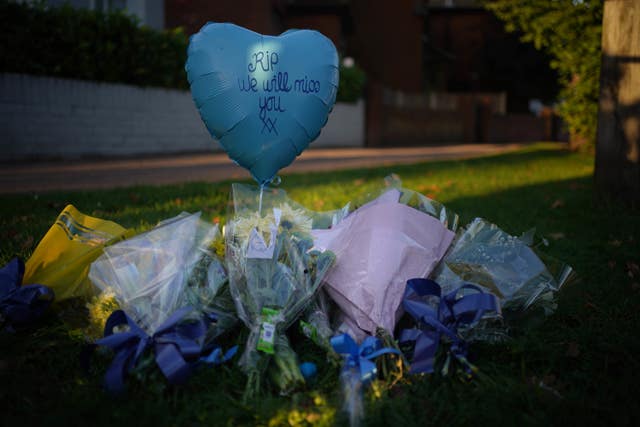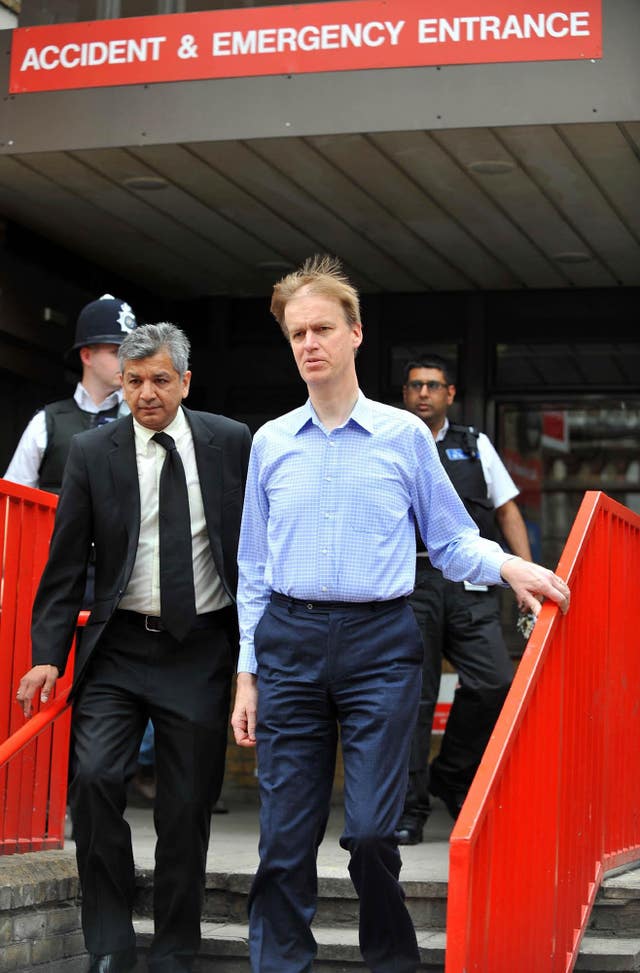
Home Secretary Priti Patel has condemned the killing of Sir David Amess as an “attack on democracy”, which raises renewed questions about the security of MPs.
Ms Patel expressed concern that 69-year-old Sir David was fatally stabbed while holding a constituency surgery in his Southend West seat.
His death came just five-and-a-half years after Labour MP Jo Cox was killed by a far right extremist in her Batley and Spen constituency in West Yorkshire.
Ms Patel said she was “devastated” by the loss of Sir David, who she described as a “kind and loyal friend”.
“That he was killed while going about his constituency duties is heart-breaking beyond words. It represents a senseless attack on democracy itself,” she said in a series of tweets.
“Questions are rightly being asked about the safety of our country’s elected representatives and I will provide updates in due course.”
Commons Speaker Sir Lindsay Hoyle said he was “shocked and deeply distressed” at what had happened and that MPs’ security would need to be re-examined.
“This is an incident that will send shock waves across the parliamentary community and the whole country,” he said.
“In the coming days we will need to discuss and examine MPs’ security and any measures to be taken, but for now, our thoughts and prayers are with David’s family, friends and colleagues.”

Despite the sense of shock and grief across Westminster, the Father of the House – longest-serving sitting MP – Sir Peter Bottomley said MPs would want to continue to meet their constituents in person.
“I predict all over the country this weekend, next weekend and in the months to come MPs will hold advice sessions. That is what we do. When there is a challenge we have to face it,” he told the PA news agency.
“There is no perfect security for anybody. My view has always been that in many other walks of life you are at far greater risk than a Member of Parliament.
“MPs may get exceptional publicity. We are not exceptional people. We’re ordinary people trying to an ordinary job as well as we. We accept the risks.
“Being diligent and being vigilant are part of being an MP. I imagine the local police will be having discussions with MPs.
“The question is should MPs stop meeting their constituents face-to-face. The answer is we will go on meeting our constituents face to face.
“Often were are the last people who can help them when they are facing desperate troubles. Their needs, their interests come first.”

As well as the killing of Ms Cox in June 2016 in the days before the Brexit referendum, the attack on Sir David carried echoes of two earlier incidents when MPs were attacked in their constituencies.
In May 2010, East Ham MP Stephen Timms was stabbed twice in the abdomen by Roshonara Choudhry, an Islamic extremist who claimed she had wanted “to get revenge for the people of Iraq”.
Mr Timms suffered serious injuries and according to police was “extremely fortunate not to have been killed”. He remains an MP.
Nigel Jones, then MP for Cheltenham, was severely injured in January 2000 when he was attacked in his offices by a man with a sword.
Andrew Pennington, a Gloucestershire county councillor, was killed in the same attack while trying to defend the then-MP.
He was posthumously awarded the George Medal for bravery.


Comments: Our rules
We want our comments to be a lively and valuable part of our community - a place where readers can debate and engage with the most important local issues. The ability to comment on our stories is a privilege, not a right, however, and that privilege may be withdrawn if it is abused or misused.
Please report any comments that break our rules.
Read the rules hereComments are closed on this article